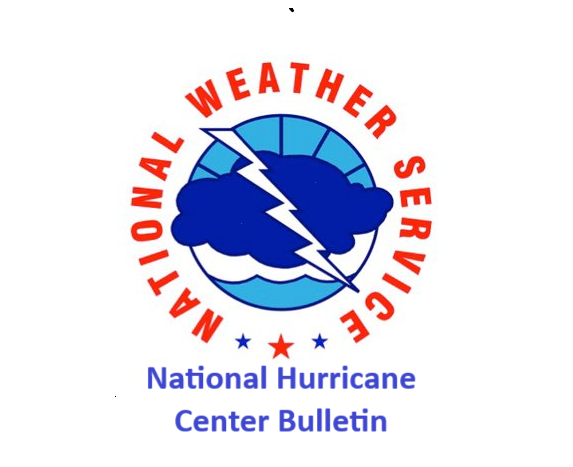000 WTNT43 KNHC 070252 TCDAT3 Hurricane Rafael Discussion Number 14 NWS National Hurricane Center Miami FL AL182024 1000 PM EST Wed Nov 06 2024 The eye of Rafael made landfall just after the last advisory was issued with an estimated intensity of 100 kt. Since then, the center has crossed western Cuba into the southeastern Gulf of Mexico, and a combination of land interaction and increasing southwesterly shear has caused some weakening. Reports from NOAA and Air Force Reserve Hurricane Hunter aircraft indicate that the central pressure has risen to near 969 mb, and that the maximum winds have decreased to near 90 kt. In addition, radar data from Cuba and the Key West WSR-88D show that the eyewall structure has decayed, with the deep convection now confined to the northeastern quadrant. The initial motion is 315/11. Rafael is on the southwest side of a low- to mid-level ridge over the western Atlantic and the Florida Peninsula. This ridge is forecast to build westward in response to a developing deep-layer trough over the southwestern United States. This evolution should cause the cyclone to move westward across the Gulf of Mexico with some decrease in forward speed during the next 2-3 days. The track guidance remains divergent after 72 h. The GFS and Canadian models show the cyclone being caught in southerly flow between the deep-layer trough and a ridge over the eastern Gulf of Mexico and turn the system northward. The ECMWF and UKMET forecast the ridge to be more over the western Gulf of Mexico between Rafael and the trough, and thus turn the cyclone southwestward. The GFS and ECMWF ensemble runs have tracks that support both of these possibilities. Given the spread and uncertainty, this low-confidence latter part of the forecast track shows a slow west-southwestward motion close the the consensus models. The global models suggest that the current shear should decrease in about 24 h, then increase again later in the forecast period. The forecast track keeps the system over relatively warm sea surface temperatures, especially if it turns southwestward. However, all of the guidance agrees that the airmass over the Gulf will be quite dry, and this should lead to gradual weakening even if the system stays over the warm water. There remains a lot of uncertainty in the intensity forecast, as the environment is much more hostile to the north of the forecast track and somewhat more favorable to the south of the forecast track. The intensity forecast follows the overall trend of the guidance, but the guidance itself has a significant spread. Since the eyewall structure has decayed and the system is moving away from western Cuba, there will be no more hourly updates for Rafael. Three-hourly public advisories will continue as long as watches and warnings are in effect. Key Messages: 1. While Rafael is now moving away from western Cuba, a hurricane warning remains in effect for this region where a life-threatening storm surge, damaging hurricane-force winds, and destructive waves are still possible. 2. Tropical-storm-force winds, especially in gusts, are expected in the Lower and Middle Florida Keys tonight. 3. Hurricane Rafael will continue to bring periods of heavy rain to western Cuba into Thursday. Flash flooding and mudslides are possible along the higher terrain. 4. Rafael is forecast to meander over the south-central Gulf of Mexico this weekend and early next week. Interests in the southern and southwestern Gulf of Mexico should monitor the progress of this system. FORECAST POSITIONS AND MAX WINDS INIT 07/0300Z 23.5N 83.6W 90 KT 105 MPH 12H 07/1200Z 24.4N 84.9W 85 KT 100 MPH 24H 08/0000Z 24.6N 86.7W 85 KT 100 MPH 36H 08/1200Z 24.6N 88.5W 85 KT 100 MPH 48H 09/0000Z 24.6N 89.8W 80 KT 90 MPH 60H 09/1200Z 24.8N 90.9W 75 KT 85 MPH 72H 10/0000Z 25.0N 91.7W 65 KT 75 MPH 96H 11/0000Z 24.8N 92.6W 50 KT 60 MPH 120H 12/0000Z 24.2N 93.3W 35 KT 40 MPH $$ Forecaster Beven
Source link


